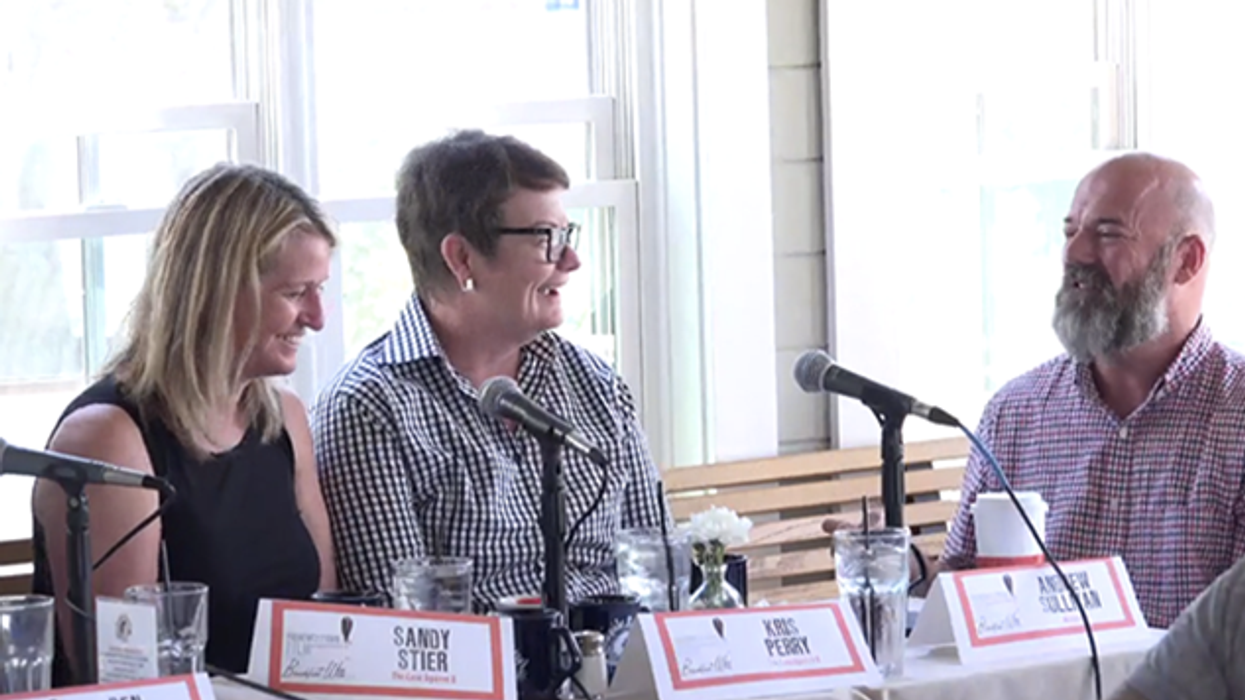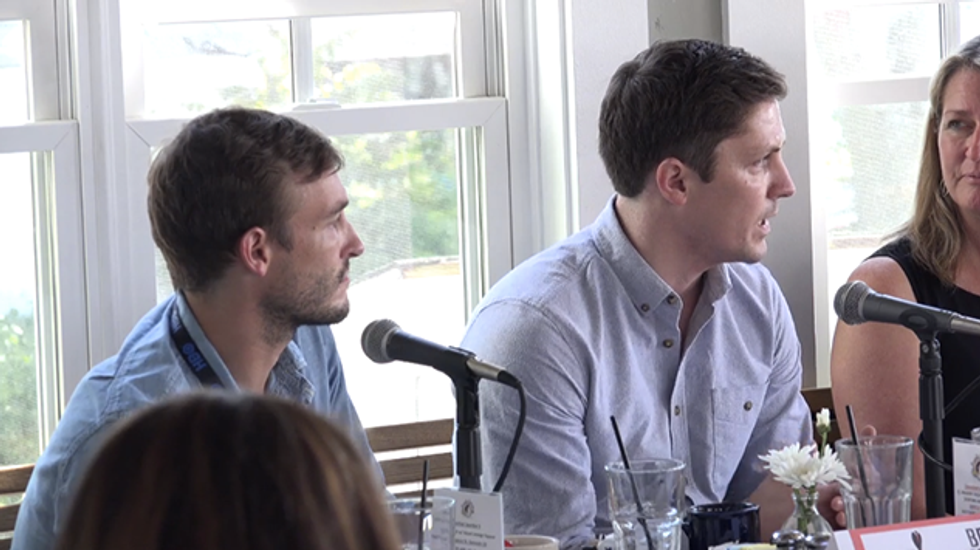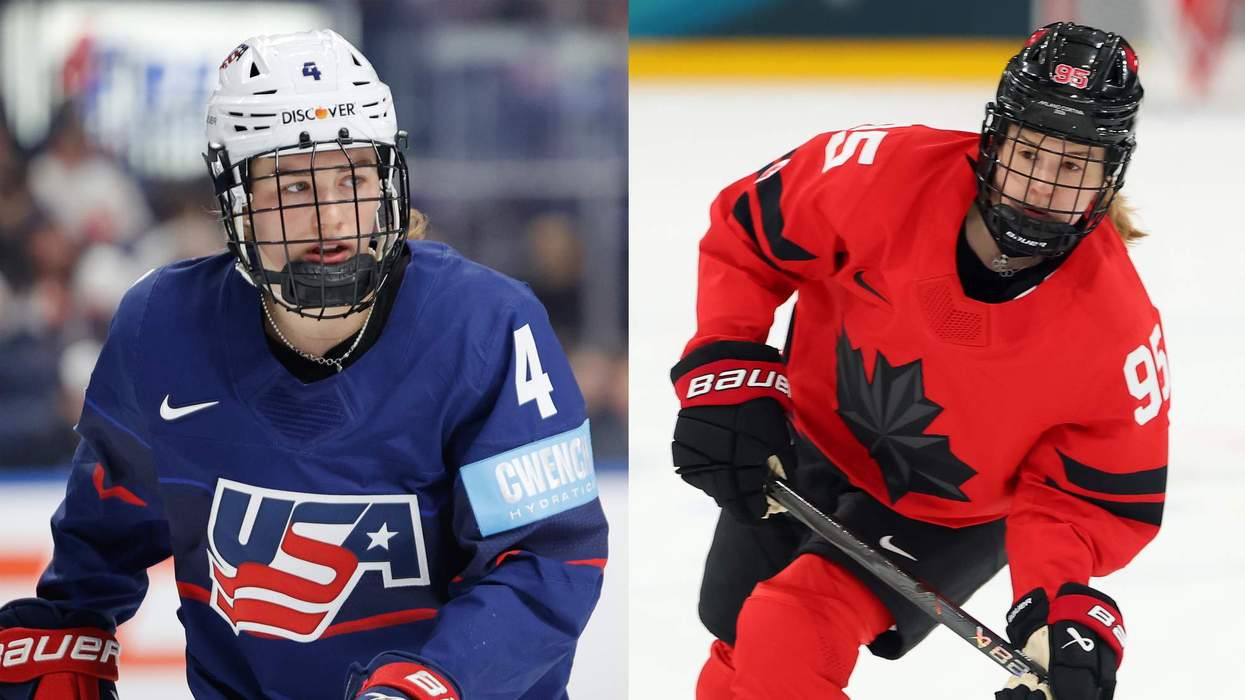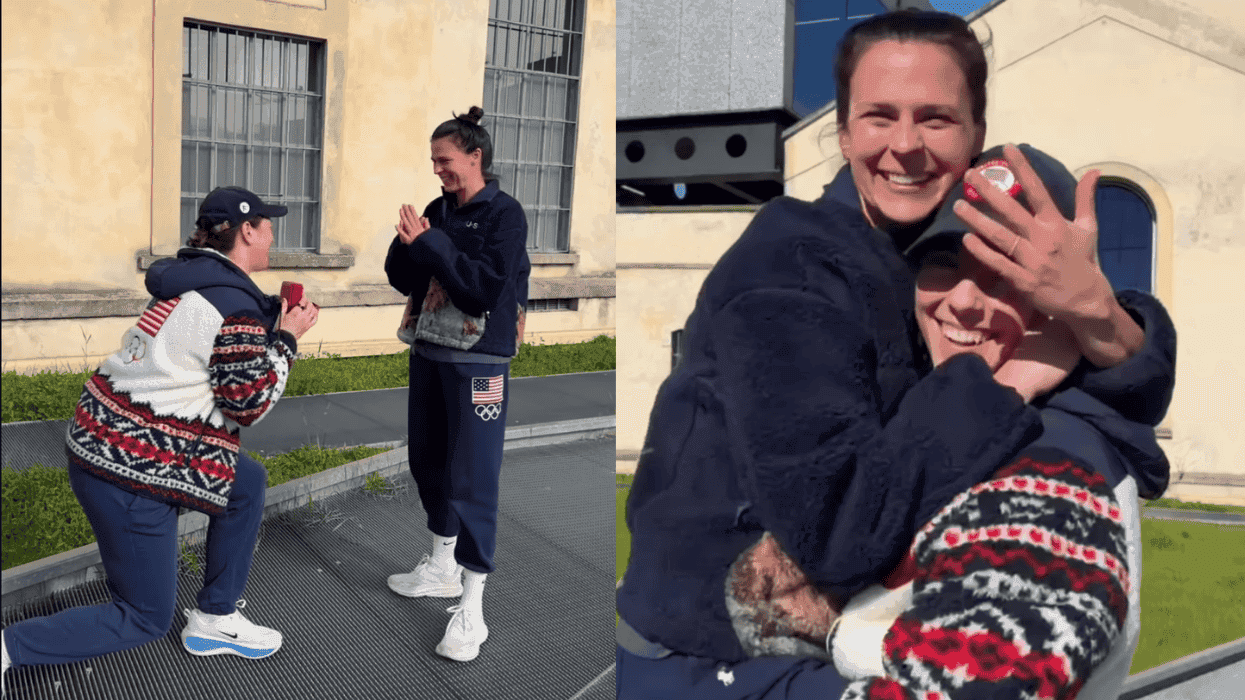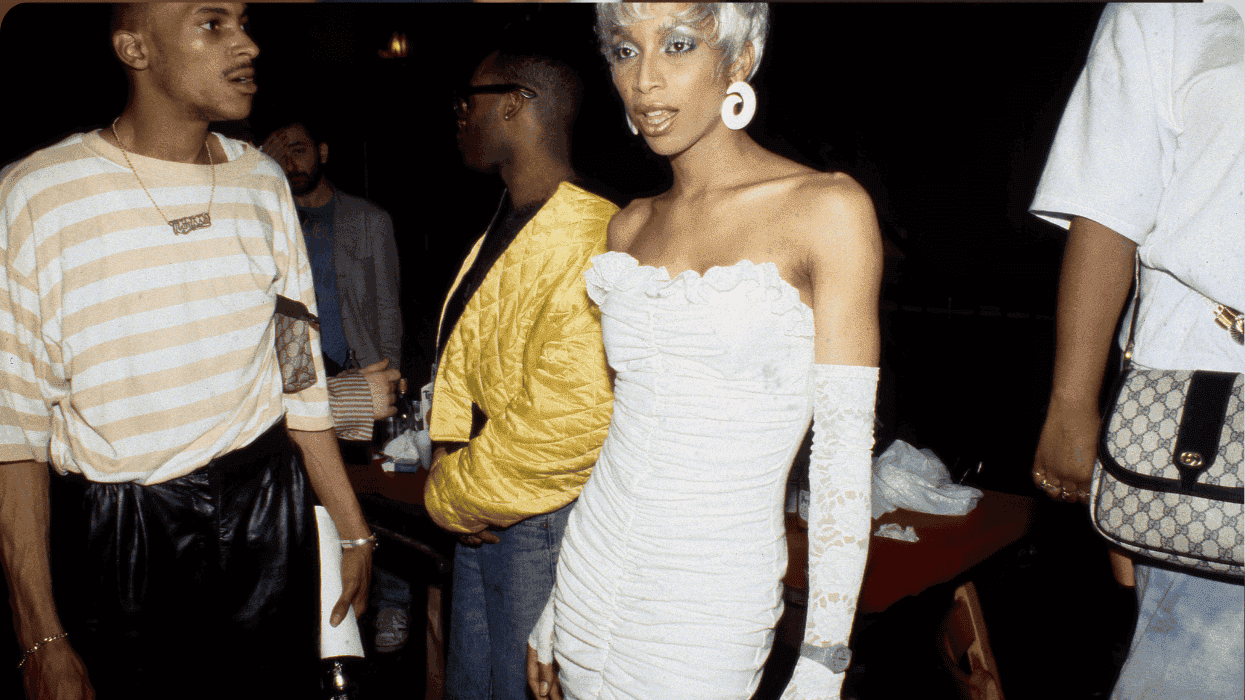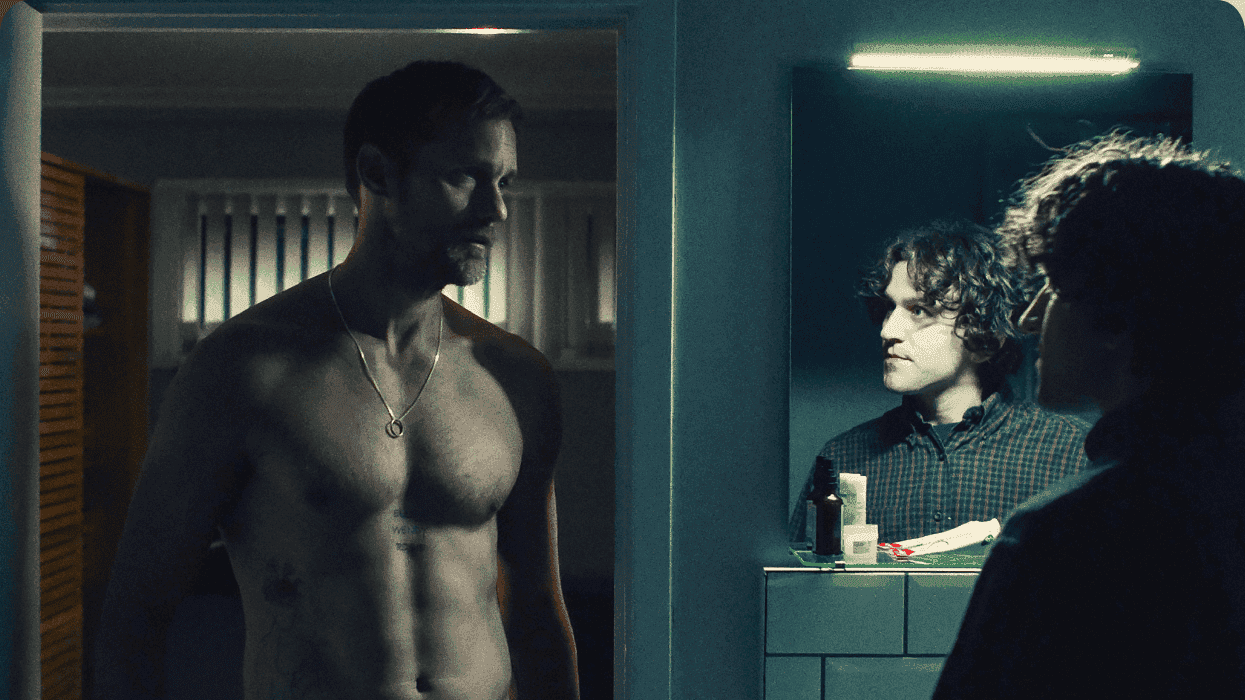The Case Against 8, the documentary that premieres tonight on HBO, also screened this past weekend at the Provincetown International Film Festival. HBO was one of the more prominent festival sponsors and screenings of many other films were often preceded by a teaser trailer for The Case Against 8.
The film follows the plaintiffs (one gay couple and one lesbian couple, both from California), who were filing suit to be allowed to marry in California. Five years ago the filmmakers were embedded with the case, and allowed access to film the legal preparations and the plaintiffs and their families who were pursuing marriage rights. The film also tracks their legal super team of Ted Olsen and David Boies, and political consultants Chad Griffin and Kristina Schake who were the founders of the non-profit organization American Foundation for Equal Rights which funded and organized the case.
Sunday morning at the Bayside Betsy's restaurant in Provincetown, filmmakers Ryan White and Ben Cotner joined two of the plaintiffs in Hollingsworth v. Perry, Kristin Perry and Sandra Steir, in a conversation moderated by journalist and Provincetown resident Andrew Sullivan.
Sullivan began, "What kind of documentary is this? Is it advocacy, human interest, political?"
"First off let me say it's an honor to be on a panel with Andrew Sullivan," said Ryan White.
Sullivan interrupted, "Flattery will get you no where."
"Well, it's worth a shot," said Ben Cotner, to audience laughter.
From the first moments of the discussion, the room was thick with tension. It's easy to understand the anxiety given Sullivan's first-out-of-the-gate lambasting of Jo Becker, the journalist also embedded in the legal proceedings, who wrote the book Forcing the Spring. Sullivan (and many other journalists with an historical eye for the fight for marriage equality) excoriated Becker, AFER, and now-HRC president Griffin for attempting to sideline the 30 years of equality struggles, calling Griffin a "Rosa Parks" figure, and essentially suggesting that the fight for marriage equality began and ended with AFER's case. It was immediately apparent that Sullivan viewed this film in much the same manner that he viewed the Becker book.
Sullivan drilled the filmmakers, with a prosecutor's alacrity, about how they found out about the case from the beginning. Cotner, who is an executive at Paramount Pictures and Open Road Films, described hearing about it from AFER, that he and Griffin and Schake had been "friends for a long time."
"Didn't you have any qualms about making a documentary about your friends?" asked Sullivan, to which White, a director-producer of Beatles documentary Good Ol' Freda, responded that he knew none of the participants or attorneys before coming aboard.
Sullivan multiple times called the film "propaganda" and asked why the film gave no time to the groups that opposed the lawsuit (there was some internecine discussion in LGBT rights groups about whether the case was the best course of action), and no voice to the 52% of California voters who voted in favor of the antigay Prop. 8 ban in 2008.
What was described as a discussion with filmmakers ultimately ended up being quite one-sided. Sullivan said, "The unfairness is that the people who were involved in [United States v. Windsor, the case in which SCOTUS determined that section 3 of the Defense of Marriage Act was unconstitutional] that worked to achieve the real result, barely even exist in this movie," said Sullivan, "that the entire other groups who've been planning and working on this for 25 years are depicted in thus movie as ornery obstacles to the vision of Chad Griffin."
"Almost everybody in the marriage movement is really stricken and wounded by the narrative this movie sets up, because it's a slight, he said. "It doesn't say so explicitly, like the books that Griffin organized as well, but by omission."
Kris Perry expressed her disappointment saying, "What's really sad here with respect to what's happening right now is us fighting with each other--"
Sullivan interrupted, "But we didn't start this, Chad Griffin did."
"Can I finish my sentence?" Perry said. "One of the things that saddened me is within our movement there is huge disagreement over whose story is more valid, whose story should get more attention, who tried harder, who's been a bigger contributor," she continued while Sullivan shook his head in disagreement. "I would just like to say to all of you is that Sandy and I set out to make a contribution to the degree we were able to make one. We are not attorneys, we are not writers, we are not legal scholars, or experts. We're just people who wanted to help people understand what it's like to not be able to get married or have your constitutional rights. What saddens me greatly is that within our movement there is this kind of criticism of people who are trying this hard." She indicated to Sullivan, "You've never been a plaintiff in a case, so you can't really speak to that in a firsthand way, and I would just really appreciate more respect and regard for individual contributions, whether you necessarily approve of them or not. This took a lot of personal effort."
Sandy Stiers said, "And we did win in California. To us that's a big deal because we set out to restore marriage equality in California--and indeed marriage equality has been restored."
In between audience questions, Sullivan continued his critique describing the documentary as "a PR campaign for AFER, for Chad Griffin; it's a PR campaign for this case and against anyone else's."
Was the film a fair portrayal, or was it an attempt to paint Hollingsworth v. Perry as the more vital one, over United States vs. Windsor and other battles, waged earlier, in the fight fot marriage equality? Watch the film and let us know what you think, here or at @matbreen.
Provincetown International Film Festival Breakfast: "The Case Against 8" Documentary: Panel Moderated by Andrew from LIPTV 2 on Vimeo.


